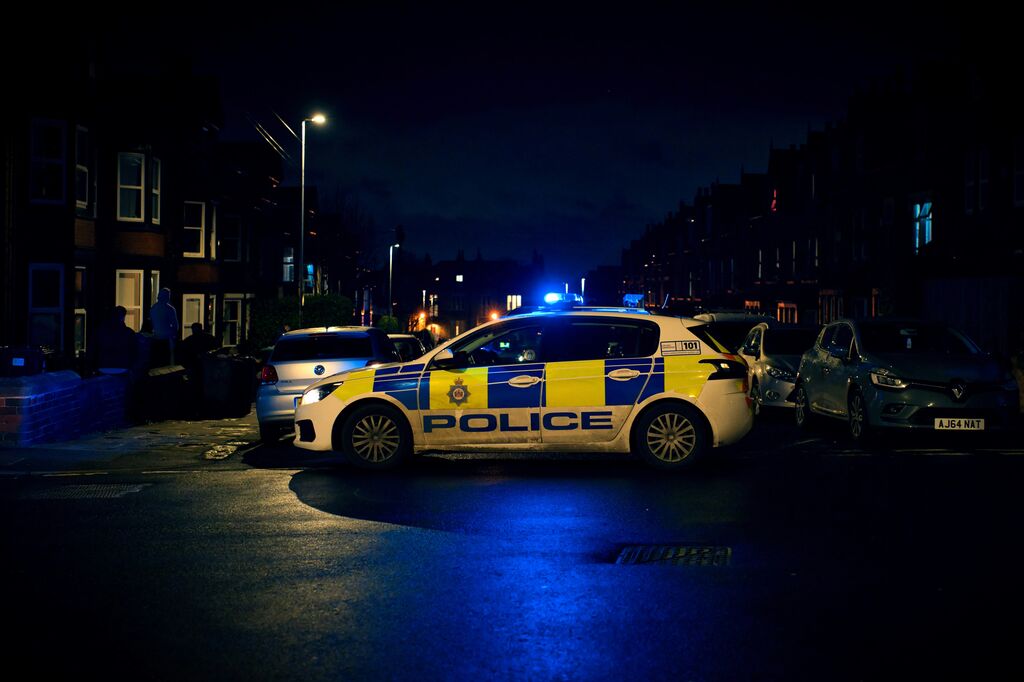The Southport stabbings and far-right protests: a Christian response

Monday saw one of the worst knife attacks in recent memory. Three young girls were killed, aged 6, 7 and 9 while attending a Taylor Swift dance school. A further nine were injured, as well as three adults. The Police said two of the adults suffered their injures because they “were bravely trying to protect the children who were being attacked.” The attacker was arrested at the scene. He is a 17-year-old young man, whose parents were survivors of the Rwandan genocide, from Banks in Lancashire, and born in Cardiff.
This is a tragedy that has touched our hearts, but perhaps the most significant political aspect of the week has been the violent protest that used the tragedy as their catalyst.
On Tuesday night, hours after a peaceful dignified vigil by the local community, who are mourning and coming to terms with what happened, hundreds of young men from outside of the area attacked a local mosque and injured a number of police officers – some of whom had been amongst the first responders to the stabbing the day before. Other violent riots and attacks have occurred in London, Hartlepool, and Aldershot. We now know that the violence was instigated by far-right groups who fuelled the violence by circulating lies about the attacker and spreading conspiracy theories a cover-up on social media.
Apart from being appalled at the violence and condemning the rioters why should we care about this story and how should we respond?
Let me suggest that as Christians, our first response will be compassion, sympathy, and empathy. It is also right that we seek justice, but we must be careful not to use justice as a pretence for revenge.
What does this look like? On one level it is to grieve and mourn alongside the parents, friends and Southport community. The Prime Minister and Home Secretary embodied this in visiting Southport on Tuesday. We can express our support by offering our prayers and perhaps even reaching out to the local church to see what they need.
But as we learn from the book of Job, trying to infer an explanation to inexplicable acts of suffering can often be unhelpful in such circumstances. We long to know why the 17-year old man attacked a group of young children happily dancing to Taylor Swift songs. But we may never know. And that is hard; indeed, it almost feels unacceptable in a culture that feels the need to know everything, because we want to feel we can control everything – including tragic and evil acts. We should guard against our own desire to assume we can understand reasons and explanations for evil, just as we should have healthy scepticism of political and other leaders who declare they can do so.
And this leads to the second key lesson to learn from the tragic events of this week: truth matters.
As Christians we must love truth. We must pursue it with vigour. We must be prepared to work hard to find and defend it.
This week we have seen the power of lies, that lead to violence and destruction. We have seen how groups and individuals will weaponise love of country, a notion of a lost good society, and even the name of Christianity in their desire for power, privilege, and gain. Far-right groups who do such things are no friends of truth or the Truth.
Of course, conspiracy theories and lies are not just the domain of the far right, and we should all be on our guard against subscribing to ideology over truth and facts. Some left-wing activists have denied the deaths and atrocities committed by Hamas on 7 October, or even declared that they were legitimate actions, as a way of justifying their antisemitic sentiment and violence in protest around the war in Gaza.
God teaches us that there is an unbreakable bond between love and truth, just as there is a bond between lies and sin.
In the famous passages on love to the Corinthians, Paul writes, “love does not delight in evil but rejoices with the truth.” (1 Cor 13:6) In contrast, we are often warned that the result (as well as the cause) of lies is sin. From Proverbs (12:22, 19:9) to Jesus’s teaching (Matt 15:18-20) and through to Revelation, lying is seen as serious, as a sin, and as the path to further sin, both personal and social (Rev 21:8).
We are people commanded to be, and transformed to be, those who love truth and hate lies. As the editor of Desiring God, David Mathis, wrote, “the pursuit and telling and upholding of truth is, then, no mere pragmatic concern, nor some secondary religious conviction. It is a worship concern, stemming from our ultimate allegiance. We worship the one who is Truth himself. And we receive the gift of right standing with God, in him, by faith, through the truth of the gospel.”1
This matters because, as we have seen this week, it can have serious consequences. And I am concerned that on many occasions, those who sincerely seek to faithfully follow Jesus are targeted by evildoers.
We must work very hard to seek the truth in situations like this week’s stabbing and not be quick to believe stories that simply appeal to us. Social media has the power to do much good, but it can be the problem in instances like this. When CARE reports a story we are careful to use multiple sources of information, often cross-referencing reports from different angles. That is a microcosm of good journalism, and in today’s world I would encourage any truth seeker to triangulate any issue from multiple perspectives and see that as a strength. We cannot be lazy when it comes to seeking truth.
We have been created as inquisitive, creative, dominion-holding, culture-making image bearers. It is in our DNA to seek truth; to understand that there can be deeper truths behind what we see and experience. Conspiracy theories and false teachers twist this to their own ends. We must maintain our inquisitiveness and sense of seeing justice, to keep asking good and legitimate questions of those in authority, so that we are not led astray.
That doesn’t mean that we know everything and in complex, situations we certainly cannot know everything straight away: as Christians, who know that God is the only one who knows all things, we need to try to learn to be content with our lack of knowledge sometimes. We should always hold in our heads a healthy dose of humility: in our longing for answers, we can quickly reach wrong conclusions, or fit evidence to our own pre-constructed narratives. And we must not be cynical about those in authority simply for cynicism’s sake.
Lastly, we cannot be neutral about truth. That means we cannot be bystanders to lies and falsehood. For a number of years I chaired an alliance of children’s charities that campaigned to reduce bullying in schools. Several anti-bullying campaigns taught that if we want to change culture, then all of us play a role: there is no-one who is neutral.
This is the same when it comes to the lies far-right and far-left groups spread about those they want to de-humanise and ‘other’. Their diagnosis and solutions to the difficulties many in our nation experience are lies, and we must call that out because we love our neighbours, because we love truth, and because we follow the one who is the Truth, the way, and life.
So perhaps the best response and legacy we can take forward as followers of Jesus to the tragic stabbing and murders this week is to be truth-seekers and truth-defenders in the public square.






